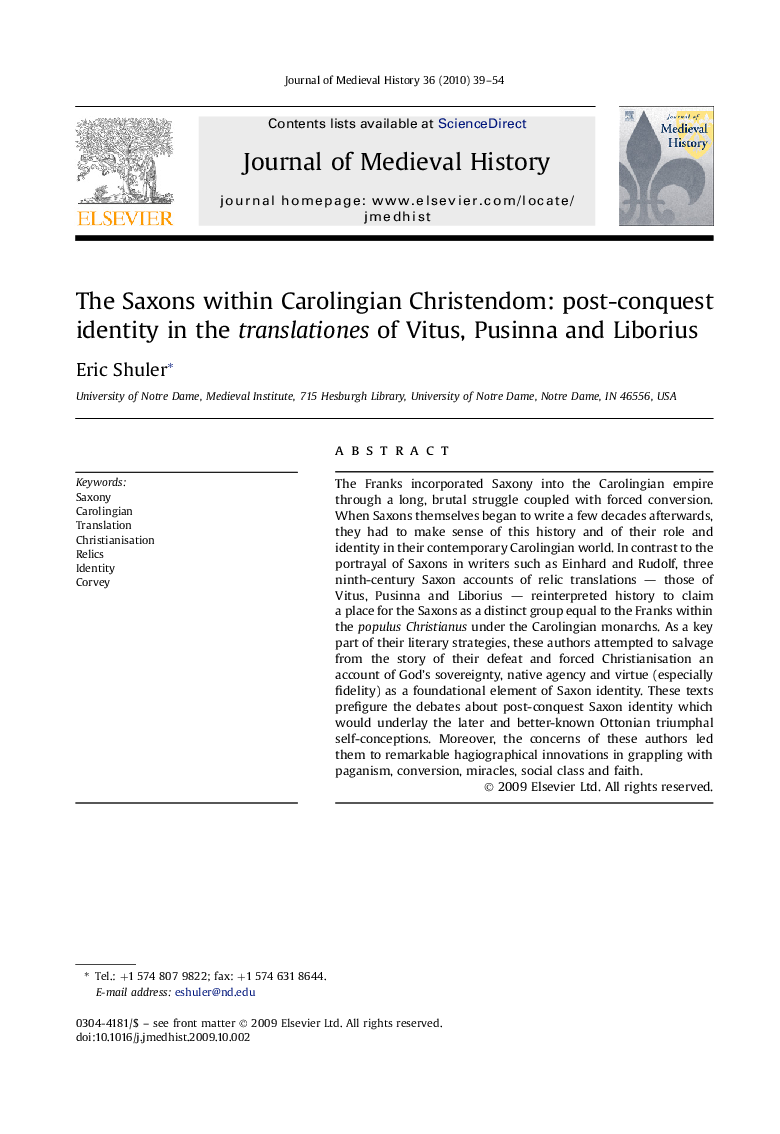| Article ID | Journal | Published Year | Pages | File Type |
|---|---|---|---|---|
| 1160184 | Journal of Medieval History | 2010 | 16 Pages |
The Franks incorporated Saxony into the Carolingian empire through a long, brutal struggle coupled with forced conversion. When Saxons themselves began to write a few decades afterwards, they had to make sense of this history and of their role and identity in their contemporary Carolingian world. In contrast to the portrayal of Saxons in writers such as Einhard and Rudolf, three ninth-century Saxon accounts of relic translations — those of Vitus, Pusinna and Liborius — reinterpreted history to claim a place for the Saxons as a distinct group equal to the Franks within the populus Christianus under the Carolingian monarchs. As a key part of their literary strategies, these authors attempted to salvage from the story of their defeat and forced Christianisation an account of God's sovereignty, native agency and virtue (especially fidelity) as a foundational element of Saxon identity. These texts prefigure the debates about post-conquest Saxon identity which would underlay the later and better-known Ottonian triumphal self-conceptions. Moreover, the concerns of these authors led them to remarkable hagiographical innovations in grappling with paganism, conversion, miracles, social class and faith.
